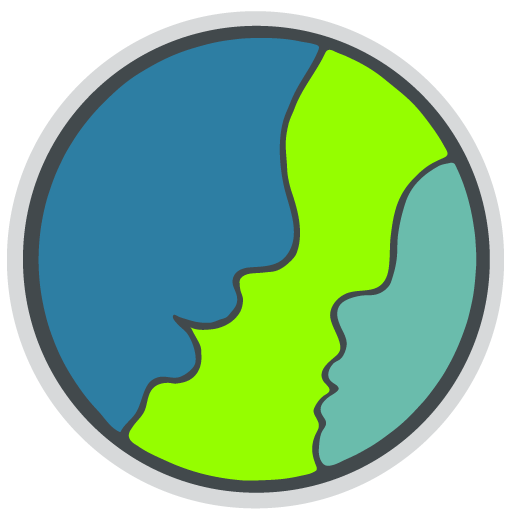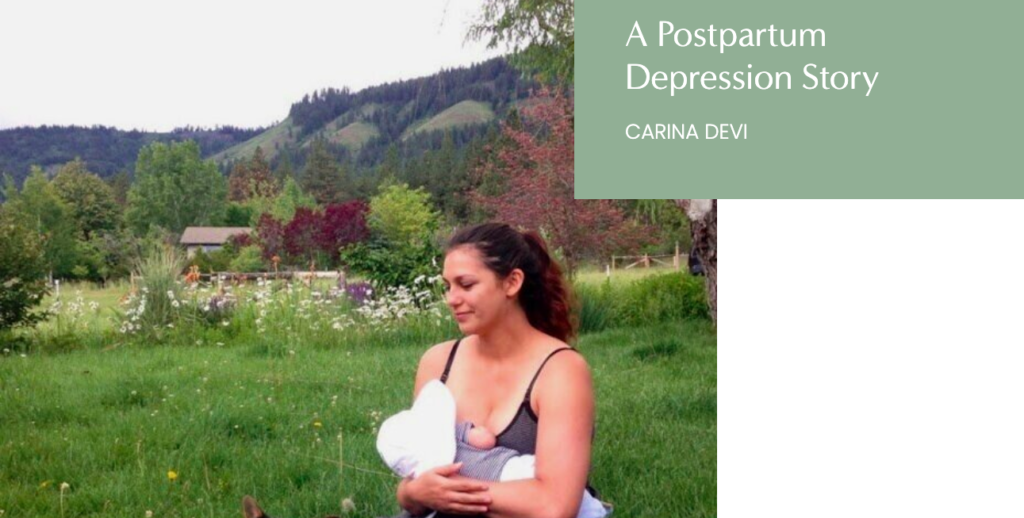This is the face of postpartum depression. I may look happy, but moments before I was crying to my friend Cori about how hard motherhood was. After calming down, she took this picture of me. I am grateful for this picture because it reminds me of the delicate state we are in as mothers, and it reminds me of the invisibility of postpartum depression.
POSTPARTUM DEPRESSION IS INVISIBLE.
There is a toughening that comes later in motherhood, and we are always finding that our well of strength is deeper than we ever imagined. But in these early days, our hearts are blown wide open, and our weepy rawness cannot be tended to fully because of the infant who needs us 24/7. There are no breaks. There is not nearly enough support. And we have no sense of what is normal.
I hardly remember the 4th Trimester, a time that I had dreamed about for years. It lives in my mind now as a dark hole of initiation, like the cave that births shamans. While I rode into motherhood on a wave of post-home-birth bliss, a shot of Pitocin in my leg to stop a hemorrage brought a sudden halt to that pink cloud of love. More on that another time.
I’ve always loved babies and had a way with them. When my mom ran a home daycare, I gravitated towards the little ones and had a talent for soothing them. My mom even called me “The Baby Whisperer.” Harrison was 6 weeks old in this picture. Colic swept in at 3 weeks postpartum and my husband and I barely made it through. Harrison was the sweetest, easiest baby throughout the day, but come 5:00 pm and the crying would begin.
This wasn’t the soft cry that is soothed by simply picking up your baby. This was the cry that makes strangers in the grocery store rush over to you and assuming you’re abusing your child. It’s the cry that wrings your guts and leaves you pacing by the front door with your car keys in hand, wondering if you can make it to the hospital. It’s the cry that no parent wants to hear – the cry of severe, inconsolable pain.
We finally learned the cause of Harrison’s colic once it had subsided – silent reflux. For the first 3.5 months of his life, I spent every whisper of energy I had taking him to craniosacral and chiropractic appointments, changing my diet and giving him probiotics, getting his lip-tie clipped and holding him 24/7. While some of those interventions helped, we didn’t have a single night during that time where he didn’t scream for 2-6 hours. It was crushing and my husband and I felt like failures for not being able to help our pained baby. I defeatedly surrendered my prideful title as The Baby Whisperer in exchange for nerve-frying nights of bouncing on a yoga ball, singing every song I knew, and tapping out with my husband every 2 hours.
THE DEVASTATION OF NOT BEING ABLE TO SOOTHE MY OWN BABY MADE ME GRIEF-STRICKEN, WONDERING WHERE THE MOTHER I IMAGINED I WOULD BE HAD DISAPPEARED TO.
As he grew out of colic, and mothering became somewhat easier (only somewhat because it was immediately followed by teething and the 4 month sleep regression), I felt completely shattered – defeated day in and day out.
I felt completely shattered – defeated day in and day out.
I thought that once colic lifted, things would be better, but here I was, expressing nearly every symptom of postpartum depression and anxiety.
Before becoming a mother, I had gone through many cycles of medications and therapy, none of which had nearly the effect that mindfulness, yoga, and meditation did.
Growing up with yogi parents, I had been studying mindfulness my entire life, and yet I couldn’t figure out how to practice it while deep in the trenches of motherhood. I bought a few books and none of them made sense at first. But I kept reading, and remembering my tools from years meditating and practicing yoga. I had to create many new tools and chuck my previously-held beliefs that in order for a meditation to have any value, it needed to last at least 30 minutes, and yoga practices needed to be at least an hour.
I found that, in actuality, I could experience a profound shift in my mood, body, and outlook with only a few minutes of certain mindful practices.
In that first year, I felt isolated, angry at the absence of “the village,” and resentful of my husband who was trying his best to help me.
I couldn’t find words for what I was feeling, I just knew that instead of truly soaking in and enjoying my baby and his growth, I spent my days simmering in rage, panicking with anxiety, and feeling numb to the things I used to love. I spent many days feeling trapped underneath a baby who would only sleep on my breast while I sat in the glider chair in my bedroom, on the footprint of the birth pool where I labored, gazing out the window and teaching myself mindfulness in order to stop spiraling into the depths of despair.
I lived in a beautiful place, tucked against a forest of conifers in the shadow of a mountain. I would sit and nurse my baby, with my bladder full and belly rumbling, unable to move, but able to shift my attention away from my unmet needs and toward the views outside. I would watch the trees sway in the breeze, the light play as the sun moved across the sky during those long days, and listen to the birds chatter and sing.
I was deep in depression and anxiety during the first 2 years of my son’s life. Around the time he was 18 months, I realized that in order to lift myself out of the black hole I was in, I needed to be proactive. I had pulled myself out of depression before, and I could do it again. And this time, I wasn’t just doing it for me.
I made a commitment to do the thing that feels impossible when you’re depressed: I got out every morning after breakfast, put my baby in the stroller, and went for a walk. Sometimes I would listen to the sounds of the town and my baby’s babbling and cooing. Other times, I would put my headphones in and listen to the metal albums I loved in high school (I hilariously thought that I somehow I wouldn’t listen to Megadeth as a mom). At other times, I would listen to podcasts with self-development and spiritual teachers, like Kyle Cease, Brene Brown, Rachel Brathen, and Oprah.
In addition to getting outside and moving my body everyday, I forced myself to meditate at least once per week, started journaling again, practicing and teaching yoga regularly, and I started a gratitude jar, where I wrote down one thing I was grateful for every day for a year and placed it in a glass jar where I could watch it fill and grow.
By the time my postpartum depression and anxiety lifted, I had become practically obsessed with mindfulness in all its forms. It wasn’t just a way to feel better, it was the secret to being able to enjoy my baby and love spending time with him. It was the formula for navigating tantrums, breastfeeding boundaries, sleepless nights, and marital struggles. It brought me back in touch with my intuition, which I had been ignoring and drowning out for years, only occasionally letting float to the surface of my awareness when I needed to make a big decision.
I BEGAN TO BASE MY ENTIRE LIFE OFF INTUITION AS A SORT OF EXPERIMENT ON TRUSTING MY INNER COMPASS.
It was through my commitment to mindfulness, intuition, and self-love, that I realized how incorrect my life had become. While it is a very long story that perhaps I will share publicly one day, this process of coming out of postpartum depression propelled me into a life of radical trust of my own innate guidance, power, and purpose. I divorced my husband, went back to work, and after a year, became a part of the Mindful Mamas Club. Two short years after postpartum depression, I am living my dream in every sense, and I couldn’t have imagined that this life was possible back then.
My relationship with my child could not be more delightful, joyful, and fulfilling. Every day is infused with magical moments, exquisite beauty, and deep meaning. I am doing my soul’s work by sharing mindfulness with moms in the way that moms need (ain’t no mama got time for long meditations). My mission is not only to give mothers the tools required for mental wellbeing, but to also show that there is wisdom in wounds, power in vulnerability, and that this massive, multidimensional transformation mothers undergo is needed – out of it will emerge the greatest superpower.
IF YOU ARE EXPERIENCING A POSTPARTUM MOOD DISORDER, YOU ARE NOT ALONE.
You will not feel this way forever. You will heal. In fact, you are already healing, however subtly. You are powerful beyond measure, even when it doesn’t feel like it. Your perseverance is inspiring. The way you give your all, collapsing at the end of each day because you have given every drop of love, is heroic. Keep going, mama, and move in the direction that your wise inner self is guiding you towards
You’ve got this.
And we’ve got you.

